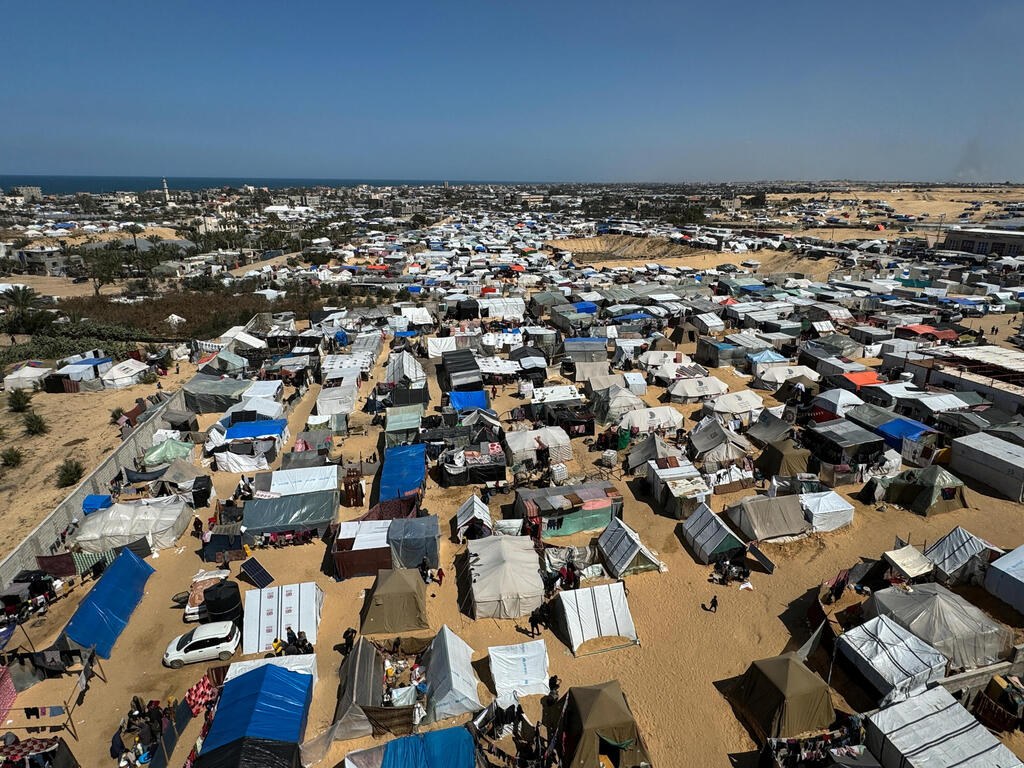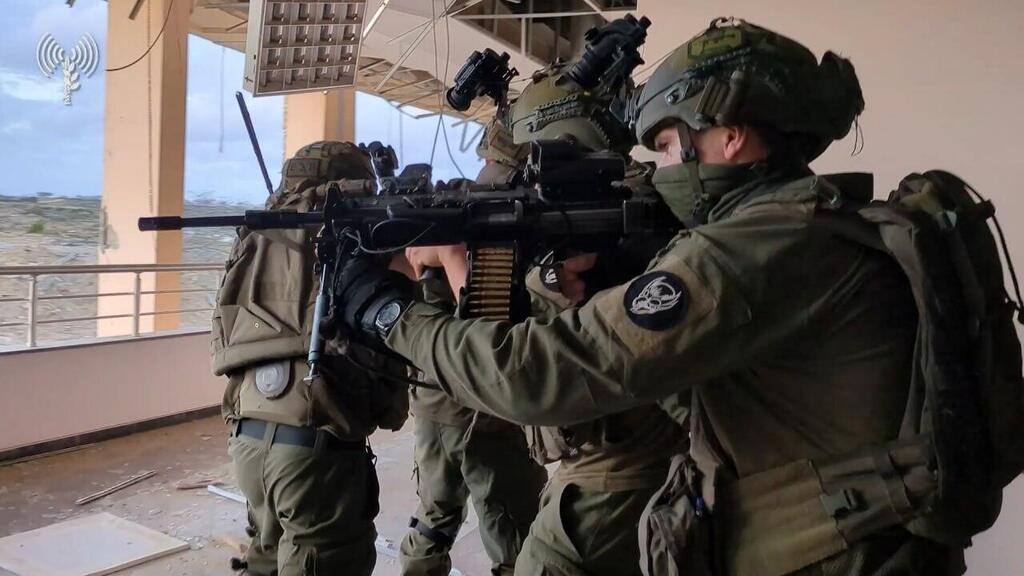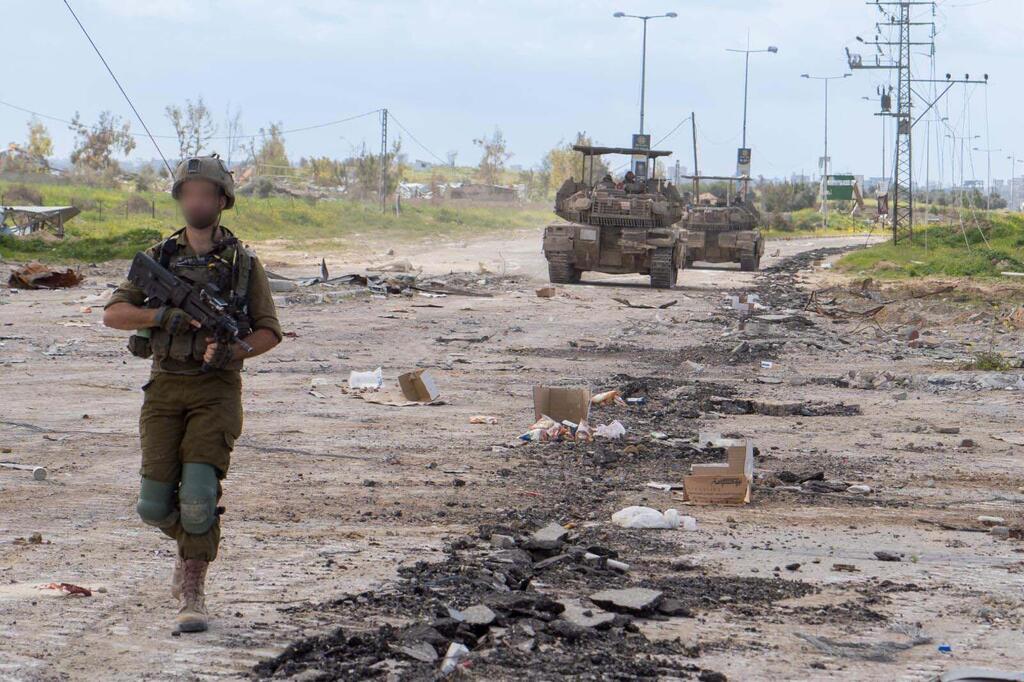Getting your Trinity Audio player ready...
The War Cabinet is expected to convene Saturday night to decide on the scope of the mandate to be granted to Mossad Director David Barnea in the hostage talks scheduled to take place this week in Qatar, following Hamas' response to Israel’s proposal.
5 View gallery
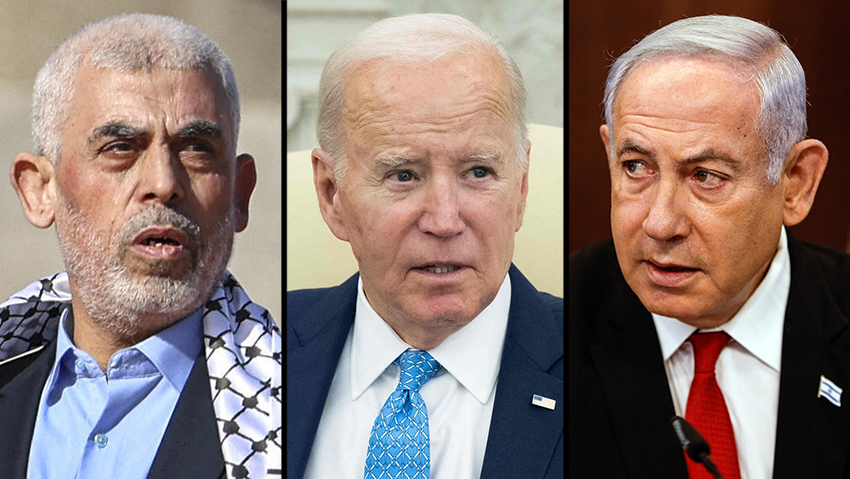

Hamas leader in Gaza Yahya Sinwar, US President Joe Biden and Prime Minister Benjamin Netanyahu
(Photo: Reuters, SAUL LOEB/AFP)
Meanwhile, Israel still describes Hamas' demands as "delusional" and approved plans for an operation in Rafah. Hamas aims for a complete cessation of hostilities in the second phase of the agreement, while Washington is optimistic. This is how the emerging deal, mediated by Qatar, is viewed by each side.
Despite 'delusional' demands, Israel to dispatch team
After the conclusion of Saturday night’s War Cabinet meeting, the matter will be brought before the expanded Security Cabinet, and senior Israeli officials have said that "the boundaries of Israel's stance will be clear."
These discussions are taking place as Prime Minister Benjamin Netanyahu continues to threaten, possibly as a negotiation tactic to exert pressure on Hamas, with action in Rafah if a deal is not reached.
Following Hamas' response, the Prime Minister's Office said in a statement on Friday that the terror organization "continues to entrench itself in delusional demands."
Hamas' proposed release ratio to mediators suggests that for each female soldier freed from captivity, 50 Palestinian security prisoners will be released, including 30 serving lengthy sentences.
More stories:
Effectively, the terrorist organization is demanding the freedom of 250 prisoners, with 100 of those sentenced to life in prison, and another 50 also receiving extended sentences.
As part of the agreement, Hamas is demanding the full return of displaced residents to the northern Gaza Strip and the withdrawal of IDF forces from the corridor splitting the northern and southern parts of the territory.
During the six-week ceasefire, negotiations will continue on the second phase of the deal, in which Hamas insists on a permanent cease-fire in exchange for the release of soldiers and youths. Overall, Hamas seeks the release of approximately 800 terrorists.
"There is no progress from Hamas, just climbing higher up the ladder," Israeli sources said of the terror group’s demands. They argue that its response is unrealistic, significantly complicating decision-making and negotiation processes.
The Prime Minister's Office announced on Friday, and not for the first time, that Netanyahu has "approved action plans" for an IDF operation in Rafah, the Gaza Strip’s southernmost city regarded as the "last Hamas bastion."
However, the announcement does not imply that an incursion into Rafah is imminent, and patience is wearing thin within the government. Netanyahu said that he "ordered preparations for a significant operation in Rafah" more than a month ago, but such an operation has yet to take place.
Nonetheless, it remains unlikely that Israel would enter Rafah before a mass evacuation of the city's population, as Netanyahu insists on clarifying in his interviews with U.S. media.
There are over a million Palestinians displaced by fighting sheltering in Rafah and any such action before evacuating the population is unlikely to receive international support and may even face severe condemnation.
The Biden administration has openly suggested halting arms supplies to Israel if the IDF enters Rafah without coordination with Washington.
Hamas still seeks to end the war
Hamas claims that the response document it submitted includes details on a hostage deal and outlines the terror organization's vision for a cease-fire. This vision encompasses "ending aggression against Palestinians in Gaza," providing humanitarian aid, returning displaced Gazans to their homes and the withdrawal of IDF forces from the enclave.
Hamas delivered its response on Friday after mediators, including Qatar, exerted unprecedented pressure on the terror organization.
Last week, the Wall Street Journal reported that Qatar threatened to expel senior Hamas political bureau members residing in Doha if they failed to persuade the leadership in the Gaza Strip to reach an agreement with the mediators and Israel.
Meanwhile, Israeli officials were confident that the apparent assassination of Hamas heavyweight Marwan Issa in an Israeli strike last Saturday night would impact the group’s leader in Gaza, Yahya Sinwar.
The division of the agreement into two phases allows Hamas, in effect, to go ahead without a guarantee to end the war. The second phase appears to be more complex to implement as long as the terror organization insists on its demand for a comprehensive cease-fire, and Israel maintains its demand to definitively dismantle it beforehand.
An official Hamas source told the French news agency AFP on Friday "we are proposing a six-week cease-fire in Gaza and phased exchanges of hostages and prisoners."
Palestinian sources familiar with the talks told the Saudi newspaper Al-Sharq that the Israeli side "is showing flexibility" regarding the return of displaced Palestinians to northern Gaza, but "still refuses to completely end the war."
Hamas senior official Mohammed Nazzal said on Friday that "the U.S. administration should pressure the Netanyahu government regarding the continuation of the war."
According to him, "Netanyahu is exploiting the negotiation process by threatening war on the civilians in Rafah to exert pressure on the resistance (Hamas)."
He outlined the priorities as "stopping the aggression, withdrawing the occupation forces, returning the displaced and addressing relief. We seek the release of all prisoners in Israeli jails, including those sentenced to life imprisonment."
Washington’s ‘cautious optimism’ and criticism of Netanyahu
Despite Israel dismissing Hamas’ demands as “delusional”, the U.S. has expressed "cautious optimism" ahead of the anticipated talks in Qatar regarding a hostage deal.
"The latest response from Hamas definitely falls within the boundaries of the framework we have been working on for several months," White House spokesperson John Kirby told reporters, "I don't want to go into more detail than that."
"The United States," he noted, "will not take part in next week’s talks in Doha but has been involved in the discussions so far and will remain involved. The fact that we won't physically be there should not be seen as an indication of a lack of serious and positive progress. We believe (Hamas' response) could be a step in the right direction."
5 View gallery
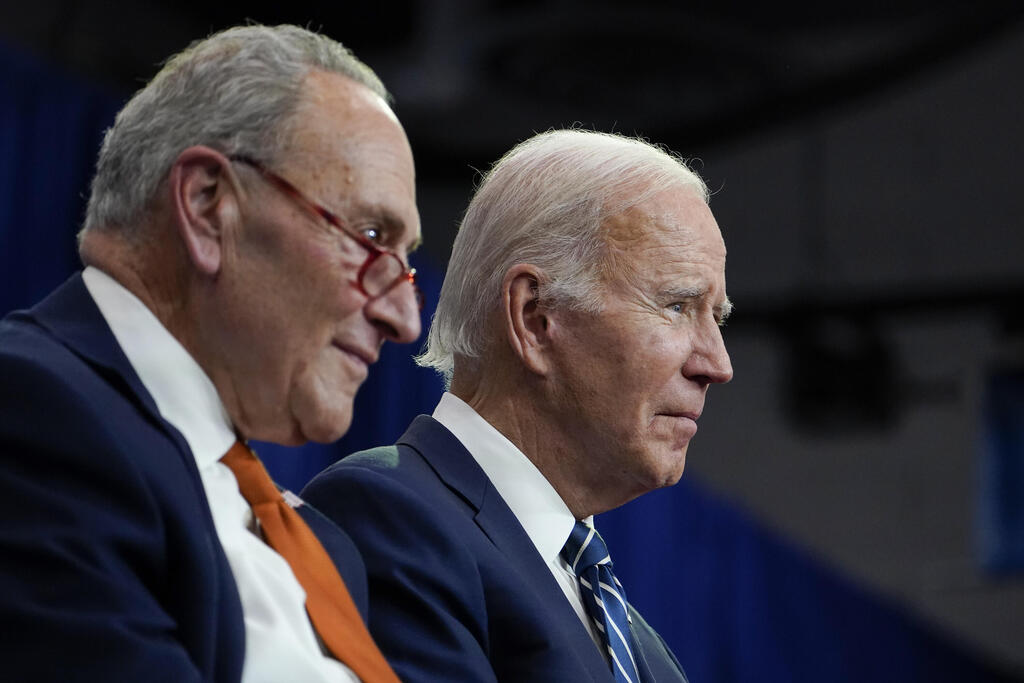

US Senate Majority Leader Chuck Schumer and President Joe Biden
(Photo: AP Photo/Manuel Balce Ceneta, File)
Meanwhile, President Joe Biden on Friday addressed an unusual speech by Senate Majority Leader Chuck Schumer, who criticized Prime Minister Benjamin Netanyahu, claiming he "has lost his way" and called for elections in Israel following the October 7 massacre.
Biden supported Schumer, saying he "gave a good speech." The American leader explained during a meeting with the Irish Prime Minister at the White House that "Schumer expressed serious concerns that many Americans share."
In a speech on Thursday in the Senate Chamber at the Capitol in Washington, the Democratic majority leader said that Israelis need to elect "better leaders.” Schumer added that it would be a "grave mistake" for Israel to dismiss the two-state solution and called on mediators between Israel and Hamas to do everything in their power to achieve a cease-fire, secure the release of hostages and facilitate aid into the Gaza Strip.




